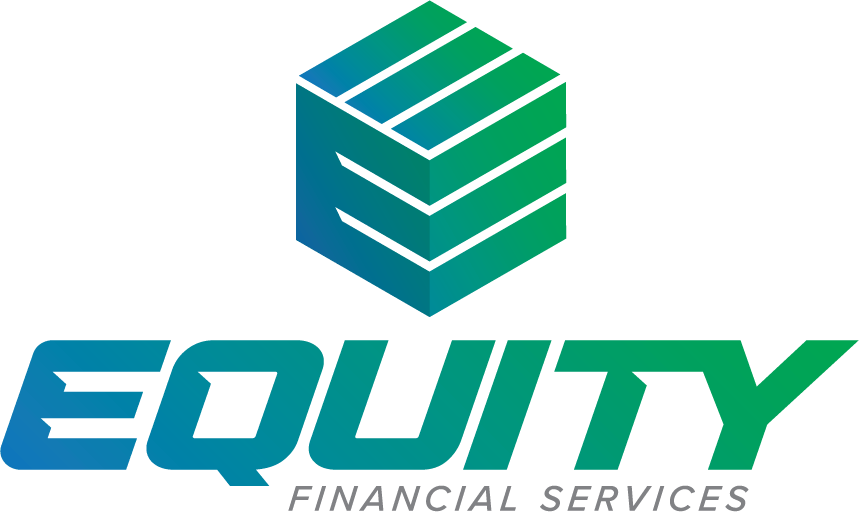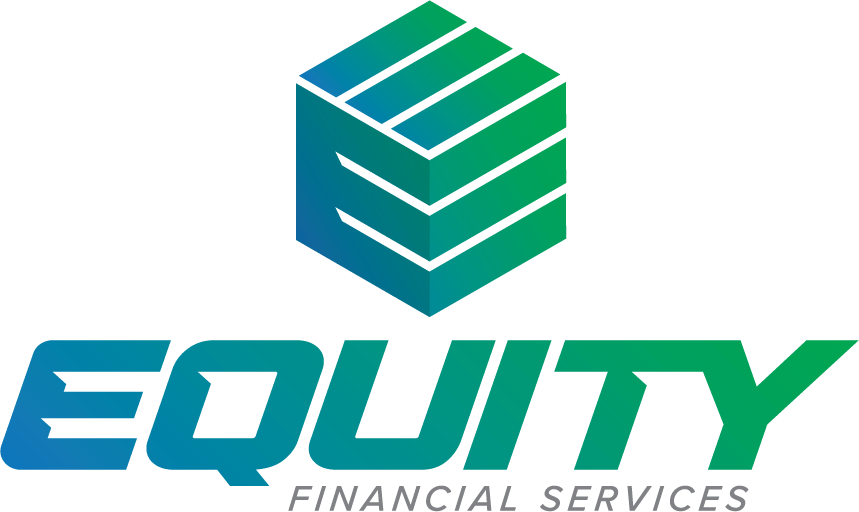Let us offer you our services.
Let us offer you our services.
What can Equity Financial Services Group offer you?
Our products and services can be mixed and matched to create a retirement income plan that serves your needs. If you don’t see what you’re looking for, simply ask—we’ve seen a lot over the years, and it’s likely we can help with what you need or put you in touch with someone who can.
We can offer:
We can offer:
401(k) Rollovers, 403(b) Planning, 529 College Savings Plans, Business Succession Planning, FEGLI Planning, Health Insurance, Legacy Planning, Life Insurance, Long-Term Care, Medicaid Planning, Medicare Supplements, Property and Casualty Insurance, Retirement Income Planning, Small Business Owner Leverage Planning, Social Security Maximization, Tax-Efficient Strategies for Individuals, Thrift Savings Plans
And so much more!
401(k) Rollovers, 403(b) Planning, 529 College Savings Plans, Business Succession Planning, FEGLI Planning, Health Insurance, Legacy Planning, Life Insurance, Long-Term Care, Medicaid Planning, Medicare Supplements, Property and Casualty Insurance, Retirement Income Planning, Small Business Owner Leverage Planning, Social Security Maximization, Tax-Efficient Strategies for Individuals, Thrift Savings Plans
And so much more!
Education Strategies
Make a map, make a plan. Then stick to it.
University educations keep rising in price.¹ That’s true of public and private colleges. For the top 50 most expensive colleges, costs exceeded $50,000 per year for students and their parents. But don’t worry. There are strategies you can use to try to mitigate these costs.
First, you might consider the “One-Third Model,” which encourages you to view college expenses for your child in three parts—save one-third of the cost, pay for one-third using financial aid or scholarships, and borrow one-third in the form of student loans. That’s simply one option. Every situation will be different, and you’ll need to speak to a professional to find out what strategy is right for you and your family.
You need to find a way to balance other long-term planning needs—like retirement income planning—with things like college education planning. Certainly, education is still a chance for many people to earn better jobs and higher wages, although America is also facing a student debt crisis that has dominated headlines and political debates—overall student loan debt in America is approaching $1.6 trillion dollars and is projected to hit $2 trillion dollars by 2021 and $3 trillion dollars by 2030. That’s assuming that nothing changes, of course, in terms of policy.²
If you think you want to help your child pay for college, now might be the time to start planning.
¹ “Education Planning: A Look at the Numbers,” InvestmentNews (Blog), September 1, 2018, https://www.investmentnews.com/education-planning-a-look-at-the-numbers-75840.
² Daniel M. Johnson, “What Will It Take to Solve the Student Loan Crisis?,” Harvard Business Review, September 23, 2019, https://hbr.org/2019/09/what-will-it-take-to-solve-the-student-loan-crisis.
Education Strategies
Make a map, make a plan. Then stick to it.
University educations keep rising in price.¹ That’s true of public and private colleges. For the top 50 most expensive colleges, costs exceeded $50,000 per year for students and their parents. But don’t worry. There are strategies you can use to try to mitigate these costs.
First, you might consider the “One-Third Model,” which encourages you to view college expenses for your child in three parts—save one-third of the cost, pay for one-third using financial aid or scholarships, and borrow one-third in the form of student loans. That’s simply one option. Every situation will be different, and you’ll need to speak to a professional to find out what strategy is right for you and your family.
You need to find a way to balance other long-term planning needs—like retirement income planning—with things like college education planning. Certainly, education is still a chance for many people to earn better jobs and higher wages, although America is also facing a student debt crisis that has dominated headlines and political debates—overall student loan debt in America is approaching $1.6 trillion dollars and is projected to hit $2 trillion dollars by 2021 and $3 trillion dollars by 2030. That’s assuming that nothing changes, of course, in terms of policy.²
If you think you want to help your child pay for college, now might be the time to start planning.
¹ “Education Planning: A Look at the Numbers,” InvestmentNews (Blog), September 1, 2018, https://www.investmentnews.com/education-planning-a-look-at-the-numbers-75840.
² Daniel M. Johnson, “What Will It Take to Solve the Student Loan Crisis?,” Harvard Business Review, September 23, 2019, https://hbr.org/2019/09/what-will-it-take-to-solve-the-student-loan-crisis.
Retirement Income Planning
Are you sure you won’t outlive your money in retirement?
No two careers follow the same trajectory. Following that, no two retirements are quite the same, either. Everyone will have different goals, needs, and strategies.
We take the time to listen to your needs and formulate a plan to take you from the accumulation phase of your life to the distribution phase. According to one study, 43% of people in America aren’t afraid of being bored, unable to travel, or dying in retirement—their #1 fear is outliving their money.¹ That number jumps to 60% when you look at Baby Boomers. These fears, according to the data, are justified: People in their 50s have only saved an average of $117,000 for retirement. Experts say a “healthy” retirement savings account would have something like six times a person’s current salary.¹ This disparity, to say the least, is striking.
Whatever your plan, and whatever your retirement goals, our firm could help you put together a retirement income plan. We’re ready to listen; we’re ready to lend our experience.
¹ Catey Hill, “Older People Fear This More than Death,” MarketWatch, accessed July 24, 2019, https://www.marketwatch.com/story/older-people-fear-this-more-than-death-2016-07-18.
Retirement Income Planning
Are you sure you won’t outlive your money in retirement?
No two careers follow the same trajectory. Following that, no two retirements are quite the same, either. Everyone will have different goals, needs, and strategies.
We take the time to listen to your needs and formulate a plan to take you from the accumulation phase of your life to the distribution phase. According to one study, 43% of people in America aren’t afraid of being bored, unable to travel, or dying in retirement—their #1 fear is outliving their money.¹ That number jumps to 60% when you look at Baby Boomers. These fears, according to the data, are justified: People in their 50s have only saved an average of $117,000 for retirement. Experts say a “healthy” retirement savings account would have something like six times a person’s current salary.¹ This disparity, to say the least, is striking.
Whatever your plan, and whatever your retirement goals, our firm could help you put together a retirement income plan. We’re ready to listen; we’re ready to lend our experience.
¹ Catey Hill, “Older People Fear This More than Death,” MarketWatch, accessed July 24, 2019, https://www.marketwatch.com/story/older-people-fear-this-more-than-death-2016-07-18.
Insurance Strategies
Life, disability, long-term care, and more—let us find a strategy for you and your family.
Insurance is a term people often use but not one they always understand. For customers, insurance companies offer a contract (known as a policy) whereby an individual or corporation receives a promise of reimbursement against possible losses in exchange for a premium. Insurance companies pool risk this way; that means that, in the event an insurance company has to pay out a claim, the company is still bringing in revenue.¹
There are several types of insurance. Some of them—like life insurance—are straightforward. Yet, even in life insurance, there are many things to consider, like term vs. whole life. Other types of insurance, such as fixed indexed annuity contracts, might require even more explanation. You can buy insurance for your car, home, boat, or business. You can also buy insurance for things like needing long-term care in retirement, liability insurance for your business, disability insurance for your profession, and Medicare gap coverage.
People often talk about insurance as “protection,” but it’s really a form of risk mitigation. It ensures that, no matter what twists and turns come with life, clients don’t face their risks flat-footed. Nothing can protect you from risk. However, with a thoughtful, proactive, and detailed insurance plan (as part of a comprehensive financial plan), you may find yourself with more options than you would have had without insurance.
¹ “Insurance: The Complete Guide,” Investopedia, accessed February 27, 2020, https://www.investopedia.com/insurance-4427716.
Insurance Strategies
Life, disability, long-term care, and more—let us find a strategy for you and your family.
Insurance is a term people often use but not one they always understand. For customers, insurance companies offer a contract (known as a policy) whereby an individual or corporation receives a promise of reimbursement against possible losses in exchange for a premium. Insurance companies pool risk this way; that means that, in the event an insurance company has to pay out a claim, the company is still bringing in revenue.¹
There are several types of insurance. Some of them—like life insurance—are straightforward. Yet, even in life insurance, there are many things to consider, like term vs. whole life. Other types of insurance, such as fixed indexed annuity contracts, might require even more explanation. You can buy insurance for your car, home, boat, or business. You can also buy insurance for things like needing long-term care in retirement, liability insurance for your business, disability insurance for your profession, and Medicare gap coverage.
People often talk about insurance as “protection,” but it’s really a form of risk mitigation. It ensures that, no matter what twists and turns come with life, clients don’t face their risks flat-footed. Nothing can protect you from risk. However, with a thoughtful, proactive, and detailed insurance plan (as part of a comprehensive financial plan), you may find yourself with more options than you would have had without insurance.
¹ “Insurance: The Complete Guide,” Investopedia, accessed February 27, 2020, https://www.investopedia.com/insurance-4427716.
Contact us today!
Contact Us
We will get back to you as soon as possible.
Please try again later.

QUICK LINKS
CONTACT
301.218.1744
1.877.490.ESF7
GwenSolomonBroker@outlook.com
6411 Ivy Lane, Suite 340
Greenbelt MD 20770
Licensed Insurance Professional. Respond and learn how life insurance and annuities can be used in various planning strategies for retirement. This material has been provided by a licensed insurance professional for informational and educational purposes only and is not endorsed or affiliated with the Social Security Administration or any government agency. It is not intended to provide, and should not be relied upon for, accounting, legal, tax or investment advice.
